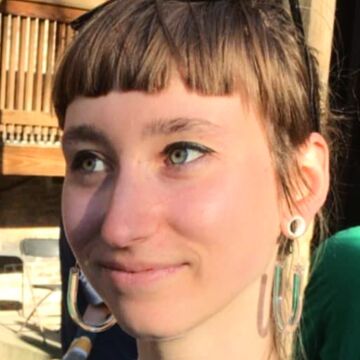

Elizabeth Cote
Lecturer
Contact
Bio
BFA 2013, Alfred University; MFA 2020 SAIC. Exhibitions: Perennialspace.com; Contemporary Art Toledo, Ohio; Setouchi Triennial, Japan; Barrett Art Center, New York; S12 Gallery and Studio, Norway; Gasworks,Brooklyn; Glasmuseet Ebeltoft, Denmark.